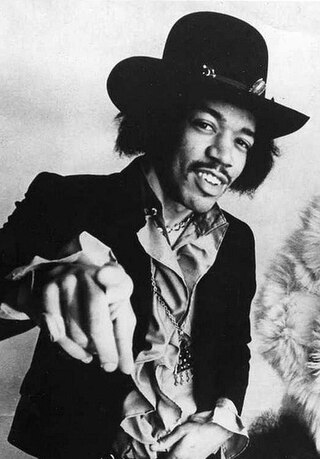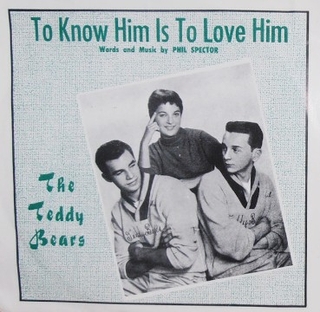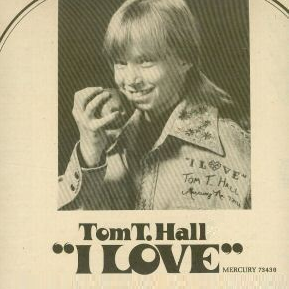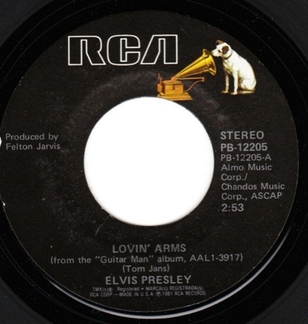Related Research Articles

"Me and Bobby McGee" is a song written by American singer-songwriter Kris Kristofferson and originally performed by Roger Miller. Fred Foster shares the writing credit, as Kristofferson wrote the song based on a suggestion from Foster. A posthumously released version by Janis Joplin topped the U.S. singles chart in 1971, making the song the second posthumously released No. 1 single in U.S. chart history after "(Sittin' On) The Dock of the Bay" by Otis Redding. Gordon Lightfoot released a version that reached number 1 on the Canadian country charts in 1970. Jerry Lee Lewis released a version that was number 1 on the country charts in December 1971/January 1972 as the "B" side of "Would You Take Another Chance On Me." Billboard ranked Joplin's version as the No. 11 song for 1971.

Eumir Deodato de Almeida is a Brazilian pianist, composer, arranger and record producer, primarily in jazz but who has been known for his eclectic melding of genres, such as pop, rock, disco, rhythm and blues, classical, Latin and bossa nova.

"One Tin Soldier" is a 1960s counterculture era anti-war song written by Dennis Lambert and Brian Potter. Canadian pop group The Original Caste first recorded it in 1969 for both the TA label and its parent Bell label.

"The Morning After" is a song written by Al Kasha and Joel Hirschhorn for the 1972 film The Poseidon Adventure, winning Best Original Song at the 45th Academy Awards. Following this success, Maureen McGovern recorded a single version that became a No. 1 hit in the US for two weeks during August 1973, with Gold record sales. Billboard ranked it as the No. 28 song for 1973.

American singer Michael Jackson released 67 singles as a lead artist, and 10 as a featured artist. One of the best-selling artists of all time, his album and single sales as of 2013 stood at 400 million. In the United States, Jackson amassed 13 Billboard Hot 100 number-one singles and was the first artist to have a top-ten single in the Billboard Hot 100 in five different decades. In 2012, Jackson was ranked the fifth best selling singles artist in the United Kingdom with 15.3 million singles sold.

American vocalist Frank Sinatra recorded 59 studio albums and 297 singles in his solo career, spanning 54 years.

Would You Lay with Me (In a Field of Stone) is the third studio album by American country music singer Tanya Tucker. It was released on February 11, 1974, by Columbia Records. The album was produced by Billy Sherrill and includes Tucker's third No. 1 single, "Would You Lay with Me (In a Field of Stone)". It was certified Gold by the RIAA in 1995 for sales of more than 500,000 copies.

Jimi Hendrix (1942–1970) was an American guitarist whose career spanned from 1962 to 1970. His discography includes the recordings released during his lifetime. Prior to his rise to fame, he recorded 24 singles as a backing guitarist with American R&B artists, such as the Isley Brothers and Little Richard. Beginning in late 1966, he recorded three best-selling studio albums and 13 singles with the Jimi Hendrix Experience. An Experience compilation album and half of a live album recorded at the Monterey Pop Festival were also issued prior to his death. After the breakup of the Experience in mid-1969, songs from his live performances were included on the Woodstock: Music from the Original Soundtrack and More and Band of Gypsys albums. A studio single with the Band of Gypsys was also released.

"I Won't Last a Day Without You" is a song by The Carpenters with lyrics written by Paul Williams and music composed by Roger Nichols. It was released in the U.K. in September 1972, paired with "Goodbye to Love" as a double-A side. The single reached No. 9 and spent 14 weeks on the chart. It was later released in the U.S. and became a hit single for them in 1974, reaching No. 11 on the Billboard Hot 100 chart and number one on the easy listening chart. It was the Carpenters' ninth No. 1 on the easy listening chart.

"To Know Him Is to Love Him" is a song written by Phil Spector, inspired by words on his father's tombstone, "To Know Him Was to Love Him." It was first recorded by the only vocal group of which he was a member, the Teddy Bears. Their recording spent three weeks at No. 1 on the Billboard Hot 100 chart in 1958, while reaching No. 2 on the UK's New Musical Express chart. Peter & Gordon and Bobby Vinton later had hits with the song, with its title and lyrics changed to "To Know You Is to Love You". In 1987, the song was resurrected by Dolly Parton, Linda Ronstadt, and Emmylou Harris, whose Trio recording topped the U.S. country singles chart.

"These Eyes" is a song by the Canadian rock band The Guess Who. The song was co-written by the group's lead guitarist Randy Bachman and lead singer Burton Cummings and originally included on the band's 1969 album Wheatfield Soul. It was first released as a single, in their native Canada, where its chart success (#7), along with the influence of CKLW-AM Windsor's radio station music director Rosalie Trombley, helped land them a U.S. distribution deal with RCA Records. It was subsequently released in the U.S. in March 1969, and became a breakthrough success for the group, as it would be their first single to reach the top ten on the Billboard Pop Singles chart, peaking at number six, and would eventually be certified gold by the RIAA for sales of over one million copies. It was also a top ten hit in South Africa. While it was actually the 18th single released by the band overall, it was the first from the line-up of Cummings, Bachman, Jim Kale, and Garry Peterson as produced by Jack Richardson.
Painter was a Canadian rock band formed in 1970 in Calgary.
Gary and Dave were a Canadian pop duo composed of Gary Weeks and David Lloyd George "Dave" Beckett. They are best known for their 1973 song "Could You Ever Love Me Again".

"Said I Loved You...But I Lied" is a song by American pop music singer Michael Bolton. The song was co-written and co-produced by Bolton and Robert John "Mutt" Lange. Released in October 1993 by Columbia Records as the first single from his ninth album, The One Thing (1993), the single topped the American and Canadian adult contemporary charts, reached the top 10 in the United States and in three other countries, and was certified gold by the Recording Industry Association of America (RIAA).

"I Love" is a song written and recorded by American country music artist Tom T. Hall. It was released in October 1973 as the only single from the album For the People in the Last Hard Town. The song would be Hall's most successful single and was his fourth number one on the US country singles chart, spending two weeks at the top and a total of 15 weeks on the chart. Additionally, "I Love" was Hall's sole entry on the Top 40, peaking at number 12.

"Wildflower" is a song written by Doug Edwards and Dave Richardson in 1972. First performed by the Canadian band Skylark, it has been covered by many artists and more recently has been sampled in a number of hip hop songs.
"Rose Garden" is a song written in 1967 by American singer-songwriter Joe South. It was first recorded by Billy Joe Royal on his 1967 studio album Billy Joe Royal Featuring "Hush". Versions by South himself and Dobie Gray appeared shortly after the original. Gray's version became a minor hit in North America in 1969.
"Big Joe Mufferaw" is a single by Canadian country music artist Stompin' Tom Connors written about French Canadian folk hero Big Joe Mufferaw. It was re-recorded in 1999 for his Move Along With Stompin' Tom album. The song describes the following tall tales, with many references to the Ottawa Valley:
Chester was a Canadian bubblegum pop band, active primarily from 1972 to 1975. Although they released only two singles in their original form before breaking up, the single "Make My Life a Little Bit Brighter" was a Top 10 hit on the Canadian pop charts in 1973 and the band garnered a Juno Award nomination for Most Promising Group at the Juno Awards of 1974.

"Loving Arms" is a song written by Tom Jans and first recorded as a duet by Kris Kristofferson and Rita Coolidge for their 1973 album Full Moon.
References
- ↑ [usurped]
- ↑ "Michael McDermott". MarmoraHistory.ca. Retrieved 30 July 2020.
- ↑ "RPM Top 100 Singles - February 17, 1969" (PDF).
- ↑ "RPM CanConChart - January 27, 1969" (PDF). Retrieved 30 July 2020.
- ↑ "RPM CanConChart - June 23, 1969" (PDF). Retrieved 30 July 2020.
- ↑ "1973's Biggest Canadian Hits". 17 March 2011. Retrieved 30 July 2020.
- ↑ "RPM Top 100 Singles - July 14, 1973" (PDF). Retrieved 30 July 2020.
- ↑ "RPM Country Playlist - June 30, 1973" (PDF). Retrieved 30 July 2020.
- ↑ "RPM A.C. Playlist - July 21, 1973" (PDF). Retrieved 30 July 2020.
- ↑ "RPM A.C. Playlist - December 29, 1973" (PDF). Retrieved 30 July 2020.
- ↑ "RPM A.C. Playlist - December 28, 1974" (PDF). Retrieved 30 July 2020.
- ↑ "RPM Top Albums - October 6, 1973" (PDF). Retrieved 30 July 2020.